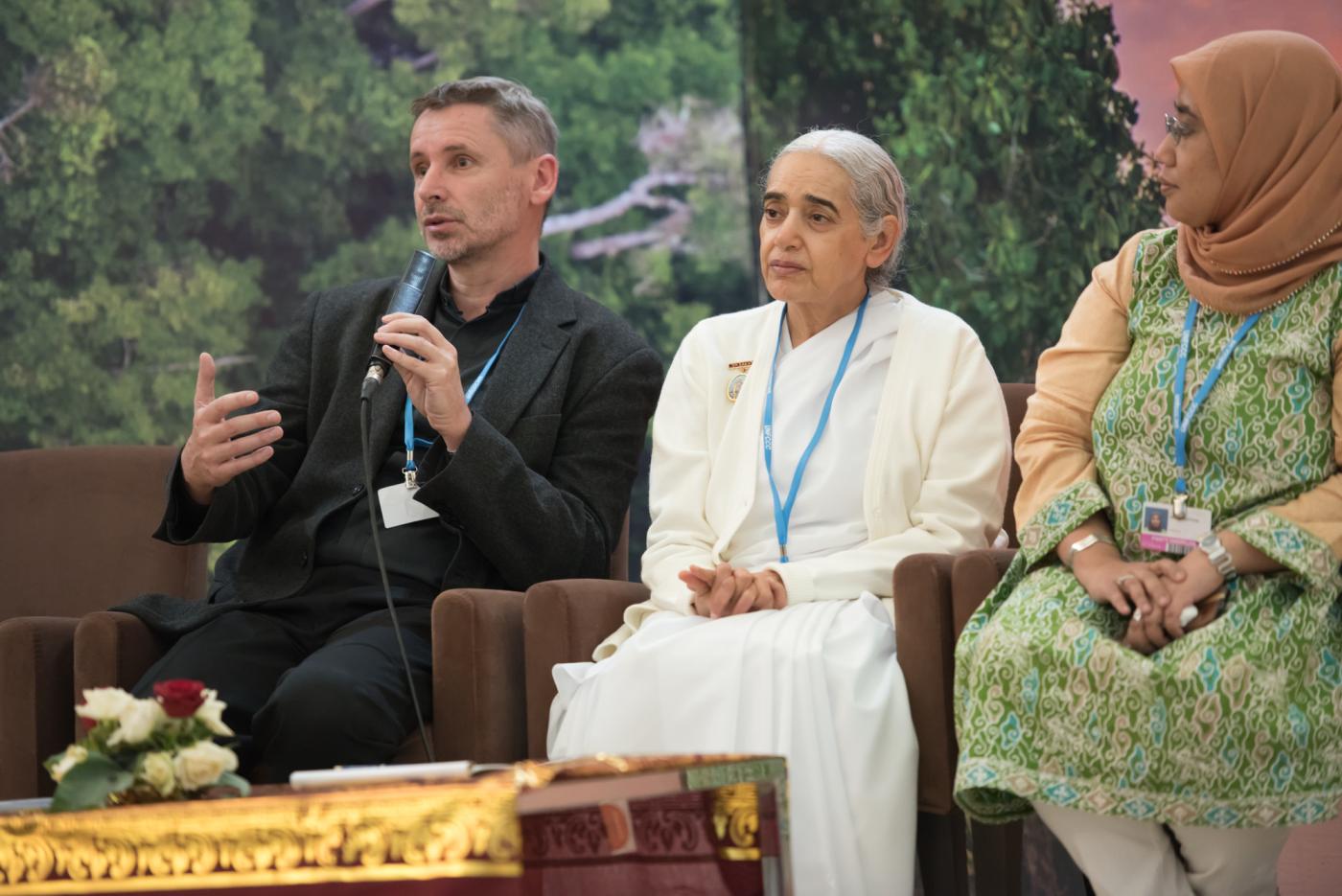Joining efforts to explore how to move from dependency on fossil fuel to a sustainable future, faith representatives gathered at the Indonesian Pavilion at COP22 in Marrakech, Morocco on 8 November, for an event hosted by the Indonesian Ministry of Environment and Forestry.
“How will nations’ commitments in the Paris Climate Agreement be transformed into real action, thus limiting the warming of the planet?” The question formed the backdrop as Nana Firman, co-chair of the Global Muslim Climate Network, opened the floor for discussion. “Climate change is also about our moral crisis, and so it is an issue of our underlying values. The climate dialogue has been happening for almost thirty years, and we see more and more faith communities engaging,” Firman observed.
Sharing technology
”We live in a time of tremendous change, the nature and extent of which is the subject of intense debate and attention around the world. At the heart of this debate is the clash of immediate human needs with their long-term impacts on the planet’s capacity to support life.” The topic formed a solid basis for debate between representatives of a variety of faith groups from Christian, Muslim and Buddhist traditions.
Sister Jayanti Kirpali, Brahma Kumaris representative to the UN, stressed that the technology necessary to move to a sustainable future is, in many ways, already here. “We do have the technology, but we do not have the commitment and will to follow through,” she said, giving examples from India where solar energy is increasingly used for such domestic duties such as cooking.
”Another matter is that, grounded in our spirituality, we devote ourselves to sharing this technology for free. Sharing is a very important part of our brotherhood. It is also stated in the Kyoto Protocol that technology should be free for the less fortunate countries,” she said.
Transformation
Rev. Dr Peter Pavlovic, study secretary at the Conference of European Churches and part of the World Council of Churches Working Group on Climate Change, urged organizations to carve a clear role for faith-based communities. “The Paris Agreement was a moment of hope, and for many of us it was also a recognition of climate change as a moral issue,” said Pavlovic. “Paris was a step forward in that regard, as this fact has now been recognized by many political leaders.”
Pavlovic moved on to stress that it is possible to transform this ethical issue into concrete action. “We need partnerships with businesses, but also with other organizations and parts of society as well as politicians,” he said, and concluded, “The role of faith organizations has to be to motivate people to such cooperation and action. Climate change is about transformation, and faith communities are about transformation as well. They can therefore contribute to a new lifestyle. We have to change both production and consumption.”
Recognizing that the Paris Climate Agreement sent a vital signal that a global energy transition is underway, and for nations to hold the warming of the planet to well below the two-degree limit above pre-industrial levels, participants observed that nations’ commitments at COP21 now stand before a more difficult phase: the question of how the world in concrete terms will limit the warming of the planet.
Ciara Shannon, Asia coordinator from GreenFaith, suggested that the world must transition away from fossil fuels as rapidly as possible, by having pledges to reduce carbon-dioxide emissions and commitments to divest from fossil fuels, and invest instead in climate solutions.
The event also saw contributions by Dr Nigel Crawhall, and Dr Hayu Prabowo from the National Council of Ulama.
Advocates urge transition to low-carbon economy, clean energy (ACT, LWF and WCC press release of 9 November 2016)
COP22 Interfaith climate statement
Photos from faith-based events at COP22: www.oikoumene.org/cop22photos








